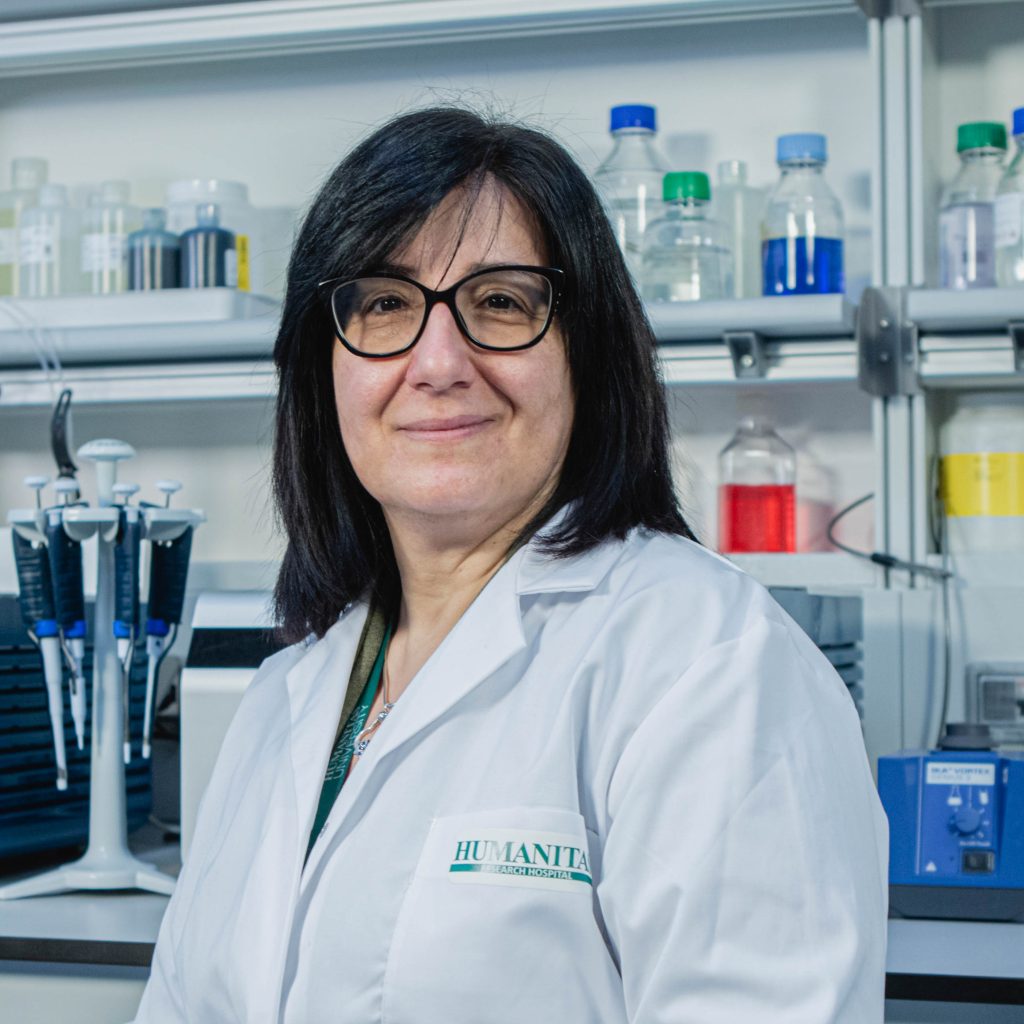Experience
Rosanna Asselta is full professor of Medical Genetics at Humanitas University and head of unit at Humanitas Research Hospital, where she leads the Medical Genetics and RNA Biology Lab.
Asselta graduated in Biological Sciences and received her PhD in Molecular Genetics applied to Medical Sciences from the University of Milan. In 2005, she became Assistant Professor in Molecular Biology at the Medical Faculty of the University of Milan. In 2014 she moved to Humanitas University as Associate Professor of Medical Genetics, and in 2022 she became Full Professor in the same field.
Since 2018, Prof. Asselta is Vice-Director of the Department of Biomedical Sciences of Humanitas University; in addition, since 2020 she is the Coordinator of the PhD program in “Data Science in Medicine & Nutrition” and a Member of the Ethics Committee of Humanitas University/IRCCS Humanitas Clinical and Research Center.
In the course of her scientific career, Asselta developed a strong expertise in statistical analysis of genetic data, also thanks to a two-year long experience as visiting scientist at the Department of Molecular Medicine of the Helsinki University, and at the Broad Institute of Harvard and MIT of Boston. During her doctoral and post-doctoral training, she followed international courses at the Turku Centre for Biotechnology (2004), European School of Genetic Medicine (2005), Helsinki University (2006), Cold Spring Harbor Laboratory (2008), and at the Dana Farber Cancer Institute (2009).
She received awards from the Italian Telethon Foundation (2001), the European Molecular Biology Organization (2004) and the European Science Foundation (2004). In 2005, she was also awarded the Early Career Investigator Award (Bayer Hemophilia program), and in 2018 she received the Diploma Sodalem Honoris Causa from the Slovak Society of Thrombosis and Hemostasis for acquired merits in medical science.
As of December 2022, she is the author of 193 papers indexed in Pubmed, with a total impact factor > 2300, a mean impact factor of 11.5 and an h-index of 40, according to Scopus, and of 49, according to Google Scholar.
